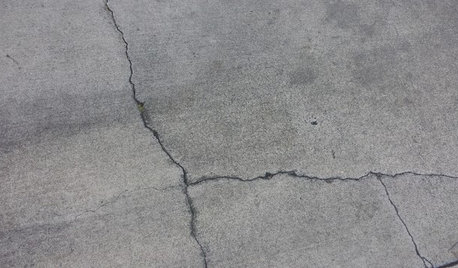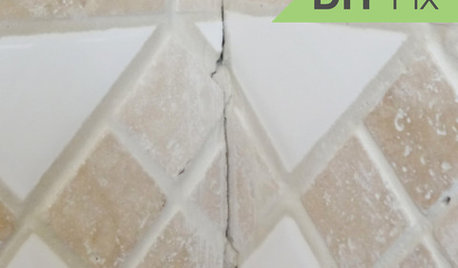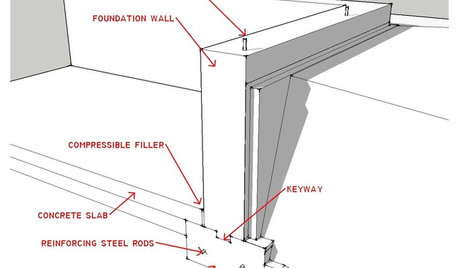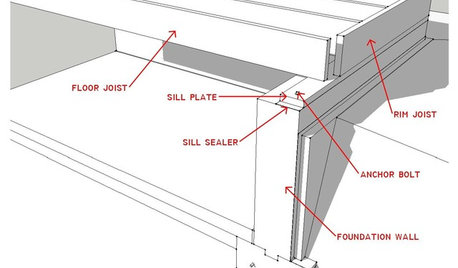Cracked foundation
annkathryn
12 years ago
Related Stories

CONCRETEWhy Concrete Wants to Crack
We look at the reasons concrete has a tendency to crack — and what you can do to help control it
Full Story
BATHROOM TILEQuick Fix: Repair Cracked Bathroom Grout
Banish an eyesore and safeguard your bathroom from water damage in 30 minutes or less with this DIY repair
Full Story
ARCHITECTUREKnow Your House: What Makes Up a Home's Foundation
Learn the components of a common foundation and their purpose to ensure a strong and stable house for years to come
Full Story
KNOW YOUR HOUSEKnow Your House: What Makes Up a Floor Structure
Avoid cracks, squeaks and defects in your home's flooring by understanding the components — diagrams included
Full Story
REMODELING GUIDES9 Hard Questions to Ask When Shopping for Stone
Learn all about stone sizes, cracks, color issues and more so problems don't chip away at your design happiness later
Full Story
BEFORE AND AFTERSReader Project: California Kitchen Joins the Dark Side
Dark cabinets and countertops replace peeling and cracking all-white versions in this sleek update
Full Story
HOUSEKEEPINGIt’s Time to Clean Your Gutters — Here’s How
Follow these steps to care for your gutters so they can continue to protect your house
Full Story
SELLING YOUR HOUSE10 Low-Cost Tweaks to Help Your Home Sell
Put these inexpensive but invaluable fixes on your to-do list before you put your home on the market
Full Story
HOUZZ TOURSHouzz Tour: Stunning Rooftop Deck Tops a Totally Remodeled Home
An overhaul of this Berkeley home includes new landscaping, a sunny home office, 2 bedrooms and a rooftop entertainment space
Full Story
LANDSCAPE DESIGNTo Manage Stormwater Sustainably, Understand Your Site
Follow this guide to learn how water moves through your landscape and how best to manage it
Full Story









User
annkathrynOriginal Author
Related Professionals
Palos Verdes Estates Architects & Building Designers · Pembroke Architects & Building Designers · Hainesport General Contractors · Arlington General Contractors · De Luz General Contractors · Harvey General Contractors · Hermitage General Contractors · Lincoln General Contractors · Mountain View General Contractors · Natchitoches General Contractors · Panama City General Contractors · Saginaw General Contractors · Wright General Contractors · Washington Interior Designers & Decorators · Whitman Interior Designers & DecoratorsBilll
berniek
ncrealestateguy
annkathrynOriginal Author
lazy_gardens
annkathrynOriginal Author
logic
brickeyee
ncrealestateguy
annkathrynOriginal Author
ncrealestateguy
Billl
brickeyee
annkathrynOriginal Author
annkathrynOriginal Author
ncrealestateguy
Billl
berniek
annkathrynOriginal Author
berniek
annkathrynOriginal Author
annkathrynOriginal Author
ncrealestateguy
annkathrynOriginal Author